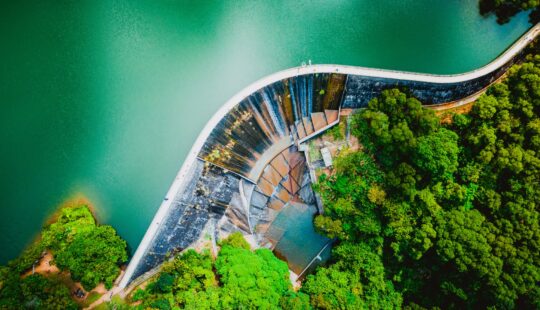A company that has been around for 180 years is clearly adept at weathering storms, but can it stay relevant for the next 180 amid pandemics, climate change, and other global catastrophes? One company determined to do so is Döhler.
It started out as a spice mill during the industrial revolution and has been a leading supplier of natural ingredients for the food and beverage industry ever since. Its secret to survival? A technology-driven mindset.
Food and Beverage
Döhler’s worldwide customers produce a wide range of goods from alcoholic and non-alcoholic beverages to bakery and confectionery as well as dairy and plant-based products. With over 5,000 different raw materials and more than 20,000 product applications, such as flavors and colorings, the company has an incredibly complex supply chain. Not only does that mean high operating costs, it means high carbon emissions. According to climate change experts, supply chain emissions are often over five times as high as a corporation’s direct emissions, leaving a significant footprint on the environment.
“Our goal is to take the complexity out of the supply chain for our customers and suppliers,” Pierre Wiese, head of Business Solutions Commercial at Döhler, says. “This involves a huge logistical effort, but we’re in this business for the long term, so we’re heavily focused on sustainability. We can only achieve our goals by being a digital leader. That’s how we can reduce carbon emissions and save on costs and resources.”
The company’s business model revolves around managing the supply chain in a sustainable manner. Döhler maintains close ties to its partners and suppliers. Farmers are deeply impacted by climate change. Their plants and trees are sensitive to changes, such as water shortages caused by lack of rain. Drier seasons, for example, mean apples with less water content and less juice for concentrate.
Continuous Innovation
The company has decades of experience finding innovative solutions, such as replacing meat and dairy products with plant-based solutions like oat milk. It also produces natural ingredients that save on production costs and raw materials, such as natural fruit flavors and colors for food and beverages.
To remain innovative, the company is working closely with its technology vendor, SAP, to find better ways to manage the supply chain and reduce emissions. The journey to digitization began over two years ago and required a change in mindset as well.
“If we want to be a digital leader in the food and beverage industry, we need a clear vision on climate,” says Wiese. “Maintaining adequate food supplies for generations to come requires better data collection and analysis to find areas where we can improve. And we need the right software and tools.”
Döhler’s supply chain challenge is not an exception. Many companies have highly complex operating and supply chain structures, and their CO2 footprints are hard to evaluate. But Döhler’s solution is innovative; it is the first company to implement SAP Product Carbon Footprint Analytics, a new tool for tracing carbon emissions with SAP S/4HANA and SAP Analytics Cloud.
Back to the Roots
“The only way to reduce carbon emissions is to trace them to their roots,” Wiese explains.
SAP Product Carbon Footprint Analytics provides insights into carbon usage by product, plant, or profit center and reveals production steps or raw materials causing high emissions.
This information is exactly what companies need to identify low-carbon opportunities, such as buying raw materials with a smaller footprint, replacing energy-inefficient machines with more modern ones, or purchasing green energy instead of a conventional electricity mix.
Such decisions are usually made by board executives and require tradeoffs on a commercial level. In the past, according to Wiese, the decision to replace antiquated machinery was based purely on cost calculations. At Döhler today, emissions are taken into consideration along with costs, and Döhler’s IT expert believes emissions will soon surpass traditional costs when it comes to making investment decisions.
Analyzing the carbon impact of production processes is a new step for many companies. It requires tight collaboration between departments that normally act independently from each other. For example, production data specialists on the shop floor need to work more closely with process experts on the business side, requiring new processes or responsibilities.
For the Long Haul
For Döhler, sustainability is an opportunity to balance economical, ecological, and social issues in order to guarantee long-term, lasting success. For the company, people, planet, and performance are equally important. Whether it’s protecting human rights within the supply chain, engaging in fair trade practices, or decreasing carbon emissions, the belief that sustainability goals can only be achieved through constant measurement and improvement is ingrained in the company DNA. That’s the role of technology. For a company with a global value chain reaching from the field to the supermarket shelf, digitization is the only way to ensure longevity.
“We’re on this journey together with our suppliers and customers,” Wiese explains. “We’re already innovating together to move away from a linear model to a more sustainable, circular one. Creating innovative food solutions and production processes now is how we’ll stay around for another few hundred years.”
Follow me on Twitter: @magyarj



